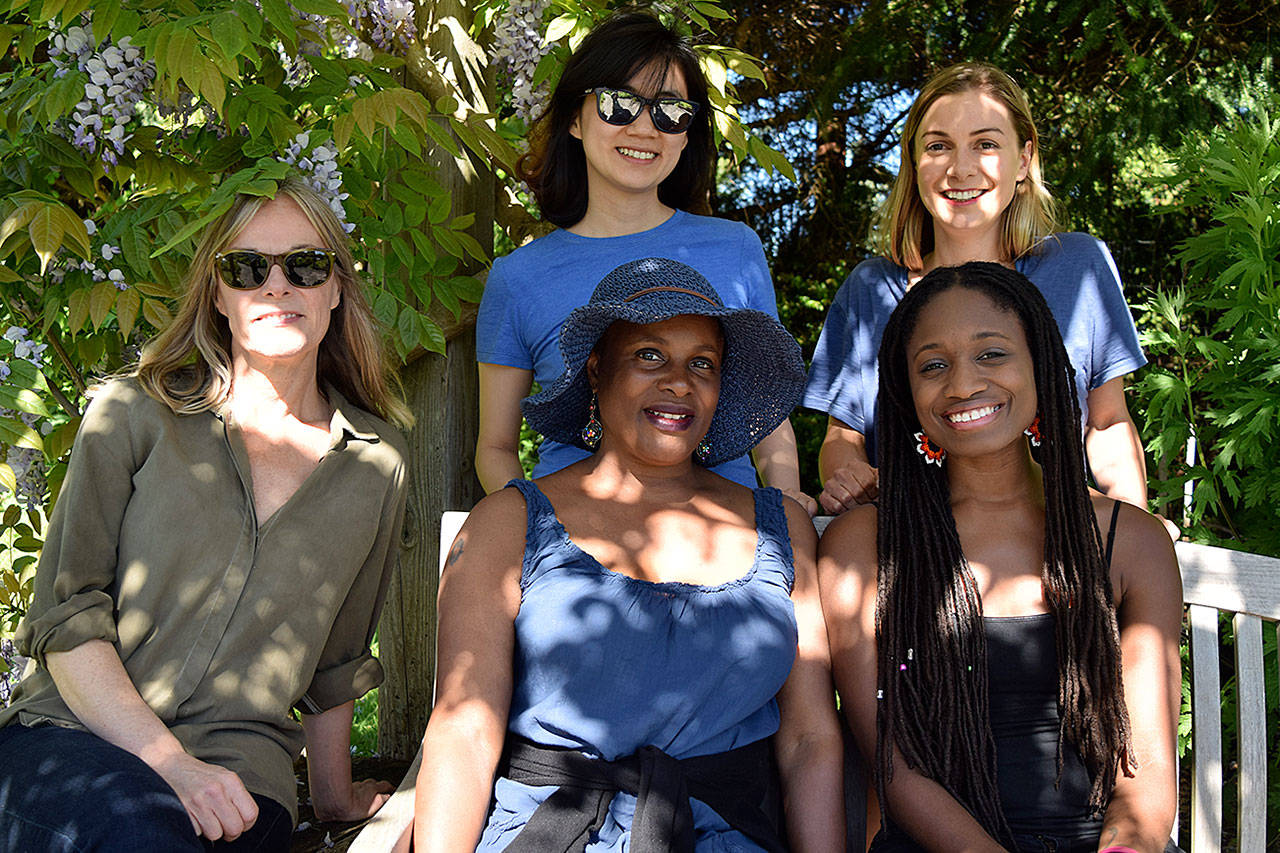For nearly 30 years, Hedgebrook has housed internationally known women writers, filmmakers and playwrights within dense woods in Useless Bay.
It’s an incubator for creativity that thrives on privacy and seclusion. Organizers and playrights will roll back that curtain this weekend and give theater buffs a sneak peek of their work.
“In one evening, the five resident playwrights will read a scene out of each of their new plays and have a conversation with the audience about each one,” Hedgebrook Program Director Vito Zingarelli said. “In that evening, you get to hear the voices of the playwrights in an intimate setting, and hear about their time at Hedgebrook.”
To culminate the playwrights’ residencies at Hedgebrook, the writers will present pieces of their work during the 20th annual Hedgebrook Women Playwrights Festival from 4 to 6 p.m. Sunday, June 4 at Whidbey Island Center for the Arts (WICA). The festival is the final act of the playwrights’ time at the retreat center, before they return to their respective homes two days later. The festival gives theater enthusiasts an intimate glimpse into the work of leading female playwrights and their take on the importance of a writer’s incubator.
Tickets cost $5 each.
The current residents have received a range of awards and have varied backgrounds. Long-established writers such as Amy Freed, who has won the Los Angeles Film Critics Award several times; Hansol Jung, who has translated over 30 musicals into Korean; and British playwright Winsom Pinnock will present a snippet of their latest works at the festival. Other award-winning writers, such as Aleshea Harris and Academy Award nominee Lucy Alibar, will also show their work.
“We feature writers of all diversities, some early on in their career and some who are quite accomplished,” Zingarelli said.
The plays featured in the festival will later be performed at theaters across the country, like the Center Theatre Group in Los Angeles and Seattle Repertory Theatre, which are commissioning the playwrights. In past years, the plays have often been incomplete when presented to the WICA crowd, since their time at Hedgebrook is centered around giving the writers the space to dive deep into their ideas. That time for writers to focus on what they envision is crucial to the playwrights. All kept their plays close to themselves during an interview with The Record.
“For writers who work two jobs, there’s nothing more precious than time outside of that life of responsibility where you’re totally alone and able to put your project front and center,” Freed said.
Helping them explore their ideas along the way are three dramaturgs, or playwright editors, who are on call throughout the playwrights’ two-week residencies. But the dramaturgs’ roles are less about the nitty-gritty of editing copy, and more about helping the playwrights explore their own big picture ideas. This is a luxury not often afforded to writers, who typically have to factor in the ideas of a production team. In Zingarelli’s words, Hedgebrook gives the writers what theaters can’t: “time and space to work unfettered without any other distraction.”
The dramaturgs, Seattle native Christine Sumption and Liz Engelman of Austin, Texas, have made the trek to the island since the festival was in its infancy. Rather than working with leading playwrights, it’s the aspect of promoting diverse female voices in theater that brings them back year after year.
“We always choose the writer and not the play, because the idea here is we want to support and amplify women’s voices in theater,” dramaturg Christine Sumption said. “We’re here to ask questions, help them find their own answers and get the deep structure of what they’re writing rather than patch-up editing.”
According to Hedgebrook’s website, “fewer than 20 percent of plays produced each year on U.S. stages are by women.” Alibar, based out of New York City, says she’s seen a glass ceiling that women writers often face in theater. She said that while it may appear that there are more female writers than in years past, many get stuck in writers’ labs “their whole artistic lives.” That’s something the playwrights recognize Hedgebrook is trying to change.
Whidbey just happens to be lucky enough to witness the change before it hits Broadway.
“That step above the glass ceiling is such an important step that women are often denied,” Alibar said. “I think Hedgebrook is addressing a really important issue for women in theater. We all benefit from including more voices.”


